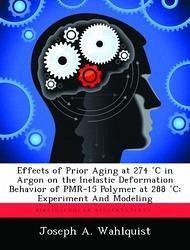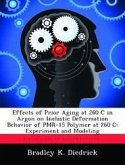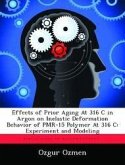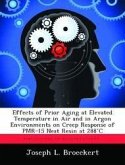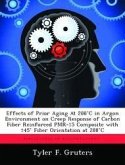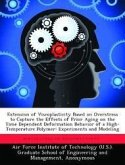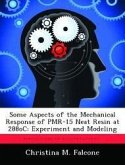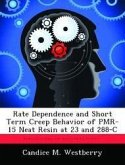The inelastic deformation behavior of PMR-15 neat resin, a high-temperature polymer, was investigated at 288 °C. The experimental program was designed to explore the influence of strain rate on loading and unloading behaviors. In addition, the effect of prior strain rate on creep, relaxation, and recovery responses was evaluated. The material exhibits positive, nonlinear strain rate sensitivity in monotonic loading. The creep, relaxation, and recovery responses are significantly influenced by prior strain rate. The experimental data were modeled using the Viscoplasticity Based on Overstress for Polymers (VBOP) theory. The effects of prior aging in argon at 274 °C on the time (rate)-dependent behavior of the PMR-15 polymer were evaluated in a series of stress and strain controlled experiments. Several of the VBO material parameters were expanded as functions of prior aging time. The resulting model was used to predict the behavior of PMR-15 subjected to prior aging at 274 °C for 2000h. The effects of aging at 274 °C were compared to previous research in which aging was conducted at 288 °C.
Hinweis: Dieser Artikel kann nur an eine deutsche Lieferadresse ausgeliefert werden.
Hinweis: Dieser Artikel kann nur an eine deutsche Lieferadresse ausgeliefert werden.

